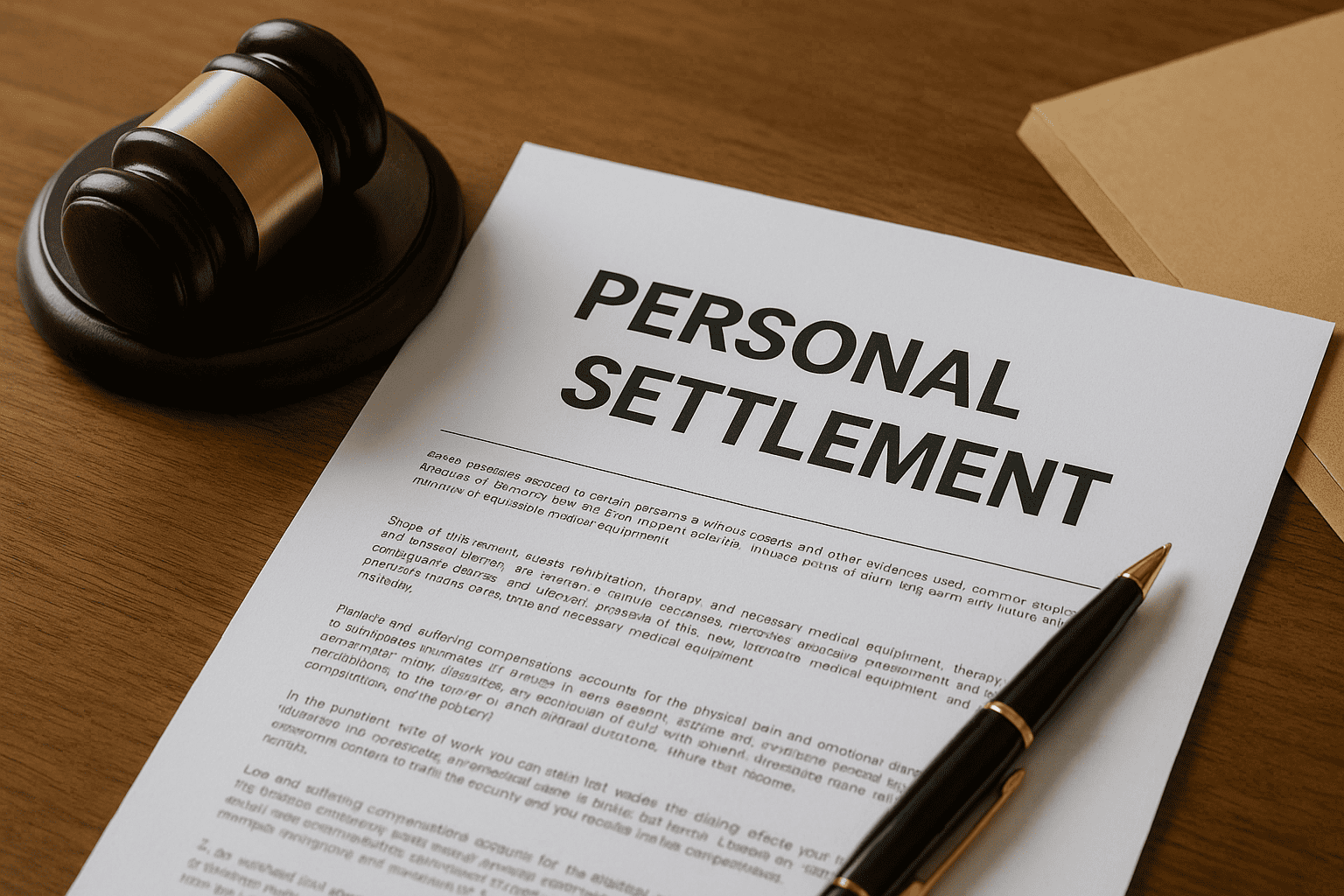- 18 Oct 2025

One minute you’re going about your day, the next you’re dealing with an injury that wasn’t your fault. Car accidents, slips and falls, workplace injuries—they happen in seconds but can affect your life for months or even years. When medical bills start piling up and you’re missing work, a personal injury settlement might be your lifeline.
Simply put, it’s when you (the injured person) and the responsible party (or their insurance) reach an agreement on compensation without having to duke it out in court. The money is meant to help make you “whole” again—or as close as possible—by covering things like:
Several things come into play when calculating your settlement:
A broken arm that heals completely is one thing; permanent damage is another. More serious injuries generally mean higher settlements.
They’ll look at your medical bills—both what you’ve already paid and what you might need to pay down the road.
If you’ve missed work or can’t return to your previous job, that lost income should be part of your settlement.
This is the tough part to quantify. Lawyers often use a multiplier approach—taking your actual expenses and multiplying by 1.5 to 5 depending on severity.
Be prepared for a reduced settlement if you shared some responsibility for what happened.
Why people choose to settle:
Why some prefer to go to trial:
How long will all this take? It depends on:
Simple cases might wrap up in a few months. Complex ones can take a year or more. Once you’ve reached an agreement, it typically takes a few weeks to get your money.
Having a good attorney in your corner can help keep things moving.
Probably not. Insurance companies want to close your case as cheaply as possible. Their first offer is rarely their best. An experienced attorney can tell you when an offer is fair and when you should hold out for more.
Getting injured is stressful enough without having to figure out the legal system on your own. A personal injury settlement can help you recover financially without the added stress of a trial, but navigating the process takes know-how.
If someone else’s carelessness left you injured, don’t go it alone. A good personal injury attorney can be the difference between a lowball settlement and getting what you actually deserve to move forward with your life.